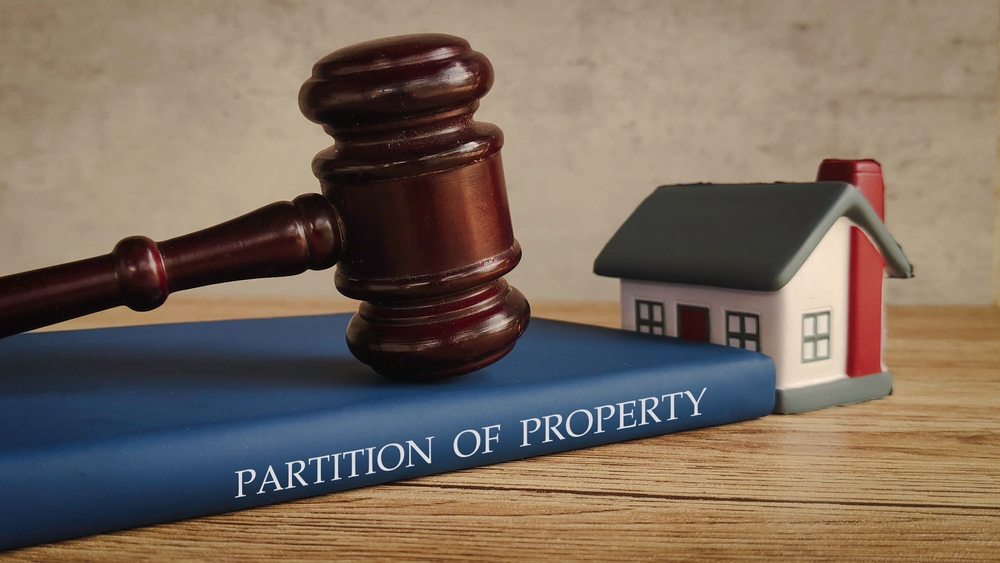Can a Joint Tenant Sell Their Share in Florida?
Can a Joint Tenant Sell Their Share in Florida?

Joint tenancy creates ownership rights that can be confusing, especially when co-owners experience conflicts or changing financial needs. A Florida property partition lawyer can help resolve conflicts between survivorship rights and individual ownership interests when joint tenants wish to end their co-ownership.
Contact The Estate Plan at (305) 735-2689 to discuss your options for resolving joint tenancy disputes in Miami-Dade County.
Key Takeaways About Selling Your Share as a Joint Tenant in Florida
- Joint tenants in Florida hold equal, undivided interests with survivorship rights, meaning the property automatically transfers to surviving owners upon death.
- While joint tenants cannot sell their specific share without converting to tenancy in common, they may force a partition sale through court proceedings.
- Partition actions in Florida follow statutory procedures that protect all co-owners’ rights while providing exit strategies for unwilling joint owners.
Understanding Joint Tenancy Rights in Florida
Florida Statutes Section 689.15 recognizes joint tenancy with right of survivorship when deeds explicitly create this ownership form. Each joint tenant owns an equal, undivided interest in the entire property, regardless of contribution amounts.
The defining characteristic of joint tenancy remains the survivorship right. When one owner dies, their interest automatically transfers to surviving joint tenants without probate proceedings. This feature provides estate planning benefits but complicates sales during owners’ lifetimes.
Limitations on Unilateral Sales
Joint tenants face restrictions when attempting to sell their interests independently. Unlike tenants in common who may freely transfer their percentage ownership, joint tenants cannot sell their share without affecting the entire ownership structure.
Any attempt to convey a joint tenant’s interest destroys the joint tenancy, converting ownership to tenancy in common. This conversion eliminates survivorship rights and fundamentally alters the co-ownership arrangement. Most buyers avoid partial interests in residential property, making unilateral sales nearly impossible even after conversion.
Partition Actions for Florida Joint Tenants
When joint tenants cannot agree on property disposition, partition actions provide legal remedies through court intervention. Florida Statutes Chapter 64 establishes procedures for forcing property division or sale when co-owners reach impasses.
The Partition Process
Partition proceedings begin by filing a complaint in the circuit court for the county where the property is located. For Miami-Dade County properties, cases proceed through the civil division at the courthouse downtown or branch locations.
The complaint must identify all co-owners, describe the property, and explain why partition serves everyone’s interests. Florida law generally favors partition, recognizing that forced co-ownership is often unworkable. Courts rarely deny partition requests absent extraordinary circumstances.
Following complaint filing, courts evaluate whether physical division (partition in kind) or sale (partition by sale) best serves the parties. Most residential properties cannot be physically divided without destroying value, making partition sales the common outcome.
Factors Courts Consider in Partition Proceedings
Miami-Dade judges weigh several factors when deciding between ordering a sale or physical division. Property characteristics, market conditions, and owner circumstances all influence judicial decisions.
Courts examining partition requests analyze these key considerations to determine appropriate remedies:
- Property type and whether physical division maintains value and utility
- Each owner’s financial contribution to purchase, maintenance, and improvements
- Existence of mortgages or liens requiring satisfaction through sale
- Whether any owner resides in the property as their primary home
These factors guide courts toward equitable solutions while recognizing that partition rights generally prevail. Special circumstances like homestead protections may complicate proceedings but rarely prevent eventual partition.
Protecting Your Interests During Property Disputes
Resolving joint tenancy disputes requires careful planning to safeguard your ownership interests. Understanding your rights and obligations helps navigate negotiations and potential litigation.
Property partition lawyers assist with documenting contributions, securing property appraisals, and presenting compelling cases for your preferred outcome. Whether seeking buyouts, defending against partition, or maximizing sale proceeds, professional guidance proves invaluable.
How The Estate Plan Resolves Joint Tenancy Disputes
The Estate Plan guides property owners through the complexities of joint tenancy dissolution throughout South Florida. Our Coral Gables attorneys understand that joint ownership arrangements, though well-intentioned at the outset, can become difficult when circumstances shift, including actions when one owner dies or wishes to sell their interest. We help clients from Miami Beach to Homestead find practical solutions when co-ownership no longer works.
Our firm handles both voluntary buyouts between joint tenants and contested partition actions requiring court intervention. We recognize that property disputes extend beyond legal technicalities, impacting family relationships, financial stability, and long-term planning.
Strategic Solutions for Co-Ownership Conflicts
Joint tenancy disputes require careful strategy to protect your interests while minimizing legal costs. The Estate Plan evaluates each situation individually, considering property values, mortgage obligations, and relationship dynamics.
We negotiate buyout agreements that avoid court proceedings when possible. When litigation becomes necessary, our property partition attorneys pursue efficient resolutions that maximize value for all parties involved.
FAQs for Florida Property Partition Lawyers
What costs are involved in partition actions?
Partition proceedings generate various expenses including filing fees, attorney costs, appraisals, and potential receiver appointments. Courts typically order these costs paid from sale proceeds before distribution to owners. Initial expenses may require advancement by the partition plaintiff, subject to reimbursement.
How long do partition proceedings take?
Uncontested partitions may conclude within 90-120 days. Disputed cases involving valuation disagreements, improvement credits, or ownership challenges often extend six months or longer. Miami-Dade’s busy court dockets affect timing significantly.
Can partition be prevented through agreements?
Joint tenants may execute written agreements waiving partition rights for specified periods. These waivers must be reasonable in duration and circumstance. Courts scrutinize lengthy waivers that effectively eliminate ownership benefits.
Do improvements affect partition distributions?
Co-owners who fund improvements may receive credits during partition proceedings. Courts evaluate whether improvements enhanced property value and adjust distributions accordingly. Documentation proving payment and value enhancement strengthens credit claims.
Resolve Your Joint Ownership Dispute Today

The Estate Plan Top Rated Lawyer Peter Dyson
Joint tenancy complications demand prompt action to protect your property interests and financial future. The Estate Plan provides skilled representation for partition actions throughout Miami-Dade County, helping co-owners find workable solutions to ownership disputes.
Don’t let joint tenancy problems trap your investment indefinitely. Call The Estate Plan at (305) 735-2689 to explore your options with an experienced Florida property partition lawyer who understands your rights and goals.
Have questions about how to get started on your estate plan or estate needs?
Have questions about how to get started
on your estate plan or estate needs?
Contact the experienced estate planning professionals at The Estate Plan
by calling us at (305) 677-8489.
Contact the experienced estate planning professionals at The Estate Plan by calling us at
(305) 677-8489.





